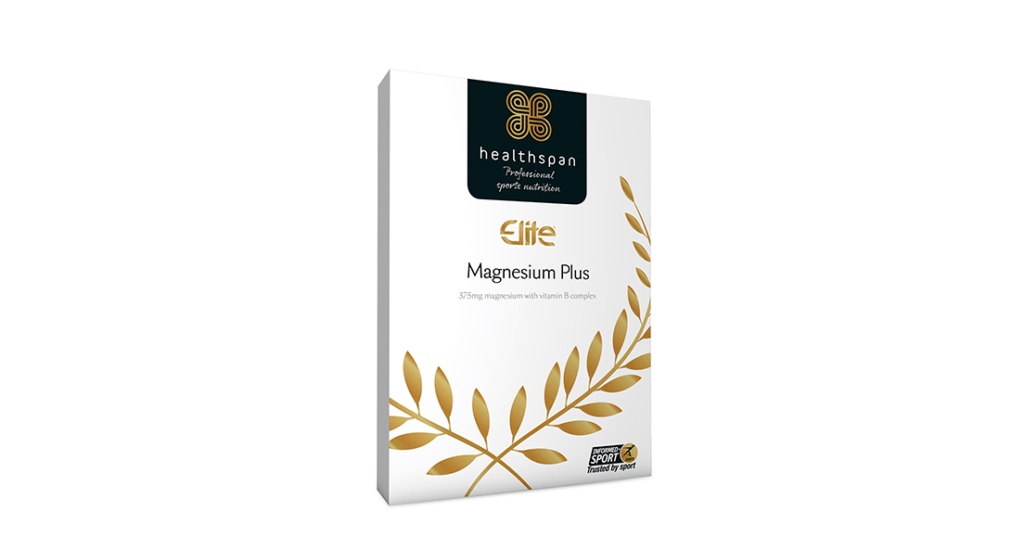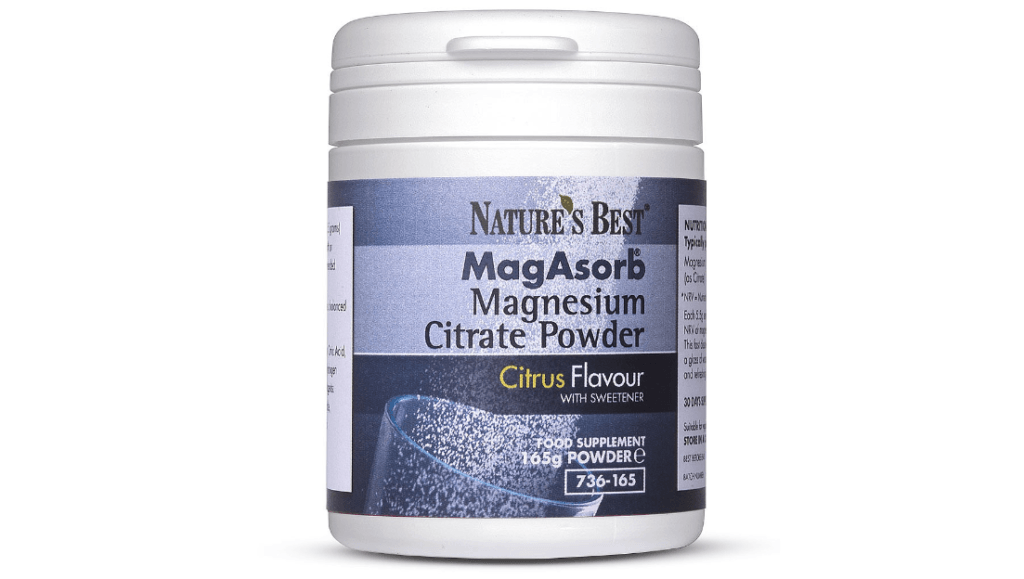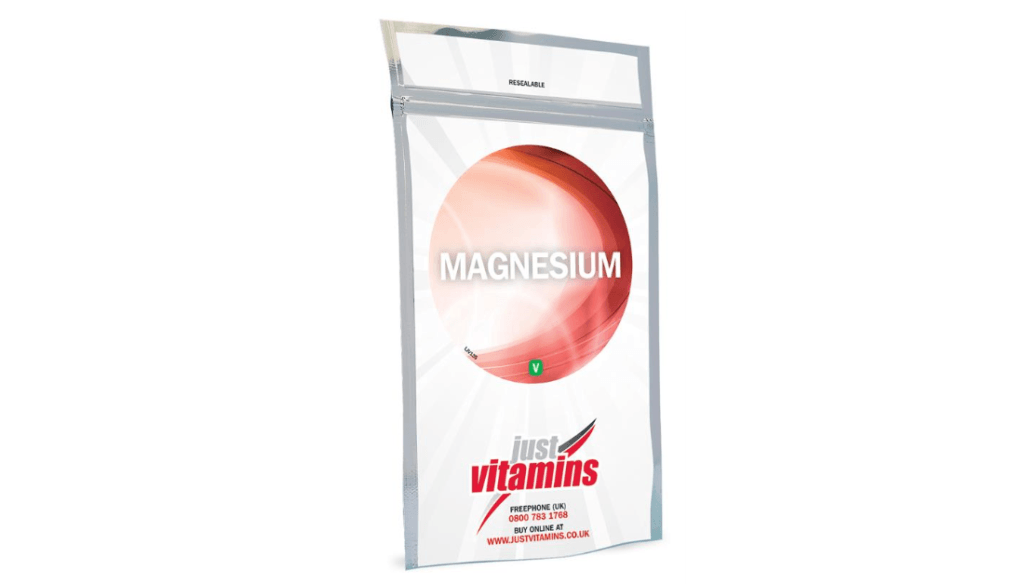Magnesium is a mineral found in many foods. Our bodies can’t produce it, but it is necessary for many biochemical processes, including creating energy from nutrients.
Natural sources of magnesium are green leafy vegetables, nuts, brown rice, whole grain bread, fish, meat and dairy. It is possible to provide enough magnesium in your diet by eating these foods, but a good-quality supplement is a great way to reduce your chances of deficiency and improve your health.
An estimated 800,000 people could be suffering from Magnesium deficiency in the UK. To help you find the best one for you, we have broken down all the critical information about these supplements and carefully selected the best available in the UK.
Table of Contents
The Benefits of Taking Magnesium
It takes a key role in hundreds of processes in your body
Magnesium can be found in every cell in your body, particularly in your bones and muscles. It plays a crucial ‘helper’ role in nearly all of the essential biochemical reactions that take place throughout your body, including; converting food into energy, creating new proteins, regulating your nervous system, maintaining genes and producing movement in your muscles.
It supports exercise

When your muscles start working harder during exercise, the number of chemical reactions required to keep them moving, and free from lactic acid build-up, increases. As a result, your body needs up to 10-20% more magnesium during physical activity.
It fights depression and low mood
This is still an area that needs more research, but studies indicate that low magnesium levels can be an indicator of a higher chance of depression and mental illness. In one study, conducted with adults suffering from depression, magnesium was found to be as effective as an antidepressant drug.
It can lower blood pressure
Several studies concluded that magnesium could effectively lower blood pressure in sufferers of high blood pressure. It doesn’t do the same to people with normal levels.
It has anti-inflammatory qualities
The presence of inflammation in the body is a crucial indication of disease and poor health. Magnesium-rich foods and supplements can reduce this inflammation, and this may relieve the symptoms of any connected conditions.
It can reduce your risk of migraines
There is a growing body of research that has been able to link low levels of magnesium with those who suffer from regular migraines. It is also thought that taking daily amounts of it can reduce the symptoms.
It can fight the symptoms of PMS
Premenstrual Syndrome can be hard to manage and include symptoms like acne, tender breasts, bloating, feeling tired, irritability, and mood changes. Wonderfully magnesium has been found to successfully relieve many of the symptoms, particularly mood changes, cramps and bloating.
The Different Forms of Magnesium
Magnesium can be taken in various forms, the most popular are:
- Magnesium Chloride
- Magnesium Oxide
- Magnesium Citrate
- Magnesium Glycinate
- Magnesium Hydroxide
- Magnesium Orotate
- Magnesium L-threonate

These forms are often selected because of their specific benefits and how easily they can be absorbed into the body. They all provide some form of the benefits listed above, but some types are also particularly suited for specific uses. They are:
- MagnesiumChloride effectively assists a broad range of cell functions.
- Magnesium Citrate, magnesium hydroxide and magnesium oxide are often used to relieve constipation and acid indigestion.
- Magnesium Glycinate supports muscle relaxation and can be soothing to the mind and body.
- Magnesium orotate can repair muscle tissue, as well as enhance stamina and performance. Magnesium L-threonate has the potential to improve brain function.
How Much Should I Take?
The recommended amount of magnesium is 300mg a day for men and 270mg for women. Taking close to 400mg per day as a supplement is considered to be safe.
Are There Any Side Effects?
The NHS states that magnesium is safe and has no potential for serious side effects when taken in recommended amounts. Excessive amounts may cause gastrointestinal symptoms, including diarrhea.
The Best Magnesium Supplements Available in the UK
1. Magnesium Citrate Capsules from NutraVita

These vegan capsules provide elemental magnesium in the form of magnesium citrate. They are formulated to be quickly absorbed into your body and deliver the essential mineral in a high amount of 440mg per two capsule serving.
Each bottle holds 180 capsules, which is a 90-day supply if you take the recommended amount of two a day. NutraVita’s range of high strength vitamins & supplements often rank highly on our lists because they contain no artificial colours or flavours. They are also GMO-free and are free from most common allergens. A bottle costs £16.99, one serving is priced at 19p and a capsule is 9p.
Key points
- Suitable for vegans
- 220mg of magnesium delivered per capsule
- 180 capsule per bottle
- £16.99 per bottle
- 9p per capsule
- Magnesium citrate
Buy these capsules on Amazon
2. Elite Magnesium Plus from Healthspan

These tablets deliver 375mg per serving alongside a complete range of B vitamins. This elite supplement has been designed specifically for those who want extra support for vigorous activity. Gelatin free and suitable for vegans, the magnesium is delivered in a dual source of magnesium oxide and magnesium hydroxide.
Each packet holds 120 tablets and one tablet counts as one serving. A packet costs £12.99 and a tablet is priced at 11p. With the combined B vitamins, this is a great value supplement.
Key points
- Suitable for vegans
- Gluten-free
- 375mg of magnesium delivered per tablet
- 120 tablets per packet
- £12.99 per packet
- 11p per tablet
- Magnesium oxide and magnesium hydroxide
- Also contains; Biotin, Folic Acid and Vitamins B1, B2, B3 (Niacin), B5 (Pantothenic Acid), B6 and B12
Check the latest price at Healthspan
3. 100mg Magnesium Tablets from Simply Supplements

Registered with the Vegan Society, these tablets deliver 100mg of magnesium in the form of magnesium oxide. 167mg of magnesium oxide is used to provide 100mg of magnesium in a form that your body can easily access. This isn’t the most potent supplement on this list, but it is ideal if you want to take a larger amount across the day. For example, 300mg can be taken as a 100mg tablet, three times a day.
A bottle contains 360 x 100mg tablets and currently costs £11.83. Each tablet costs about 3p.
Key points
- Suitable for vegans
- 100mg of magnesium delivered per tablet
- 360 tablets per bottle
- £11.83 per packet
- 3 per tablet
- Magnesium oxide
View more information at Simply Supplements
4. Magasorb Magnesium Citrate Powder from Nature’s Best

This is a magnesium supplement in the form of a magnesium citrate powder. It is flavoured with citrus and sweetener and can be dissolved into water to make a refreshing drink. If you prefer not to take tablets or find capsules hard to swallow, this is a great way to add magnesium to your diet.
Each 5.5g serving delivers 375mg of magnesium. One container costs £11.96 and holds 165g, which is 30 adult servings. Each serving works out at the cost of about 40p.
Key points
- Suitable for vegans
- Citrus flavoured powder to make a drink
- 375mg of magnesium delivered per serving
- 30 adult servings per container
- £22.96 per container
- 40p per serving
- Magnesium citrate
Check the current price
5. 188mg Magnesium Tablets from Just Vitamins

These tablets are suitable for vegans, and each contains 188mg of magnesium. To ensure maximum absorption, it is provided in a mixture of magnesium citrate and magnesium oxide. These are excellent tablets with over 150 positive customer reviews; however, they are just over 2cm long. If you’re not keen on large tablets, you might prefer to try capsules or the citrus flavoured drink.
A packet of 90 tablets costs £8.95, and one of 180 tablets is £16.45. The tablets themselves cost between 9p and 10p.
Key points
- Suitable for vegans
- 188mg of magnesium delivered per tablet
- 90 or 180 tablets per packet
- £8.95 or £16.45 per packet
- 10p or 9p per tablet
- Magnesium citrate and magnesium oxide
Buy these tablets
Conclusion
Magnesium is already providing you with an essential service in every cell in your body. Many conditions have been linked to magnesium deficiency, so it’s crucial to have enough daily.
Combining regular supplementation with a healthy balanced diet is a great way to ensure that your body is getting all the magnesium it needs.
My Supplement Recommendations
These are products that I currently use and enthusiastically recommend:
Multivitamin – Nutrigenesis Multi for Men or Nutrigenesis for Women. Performance Lab use their patented Nutrigenesis technique to provide a range of vitamins and minerals in their most effective form. Read my review.
Nootropic – Mind Lab Pro contains eleven natural nootropics that have been proven to support cognitive function and brain health. Read my review.
Collagen – Edible Health Bovine Collagen. This excellent bovine collagen powder is completely tasteless and absorbs quickly into any liquid. It’s third-party lab tested and provides 13g of collagen per serving. Read my review.
Turmeric – VitaBright Organic Turmeric with Ginger and Black Pepper. These turmeric capsules are organic, effective and affordable. They include black pepper to enhance curcumin absorption and ginger to provide additional useful benefits. Read my review.
Incredible value – G&G Vitamin 28 day packs This is the most affordable way to buy supplements in the UK. One tub holds 28 daily packs of up to 11 different vitamins, minerals or food supplements.
Related reading
If you’re not sure which vitamins or supplements you should take, you may like to read my article Which Supplements Should I take?
If you’re looking for supplements, vitamins, minerals or just some helpful information, we have some other lists that you may find useful.
- All vitamin and mineral lists
- Best Collagen Supplements UK
- Turmeric Supplements
- Best Ashwagandha
- Best Multivitamins
- Nootropic Supplements
- Best Mushroom Supplements
- Greens Blend Supplements UK
This site is a participant in affiliate advertising programs designed to provide a means for sites to earn advertising fees by advertising and linking to products and services. We participate in programs from Amazon, eBay, CJ, Awin, Viglink and other sites. We are compensated for referring traffic and business to companies linked to on this site.
Frequently Asked Questions
Which type of magnesium is best?
Nearly all forms of magnesium provide most of its main benefits. However, some are more bioavailable and can provide a quicker, stronger result. These are; magnesium chloride, magnesium citrate, magnesium glycinate and magnesium L-threonate.
What is the best time to take magnesium?
When you take magnesium should be decided based on why you are taking it. For many reasons, such as depression, high blood pressure or migraine, you should split the total amount up into 3 or 4 equal parts and take it throughout the day. To help you get a good nights sleep you can take it one or two hours before you go to bed.
How much magnesium do I need per day UK?
The recommended amount of magnesium for an adult aged, between 19 and 64, is 300mg a day for men and 270mg for women.
What kind of magnesium should I take for anxiety?
More research is needed to provide conclusive results regarding magnesium and anxiety. However, current understanding indicates that, magnesium glycinate and magnesium citrate are the forms that are best suited to soothing the mind and creating a sensation of calm.

